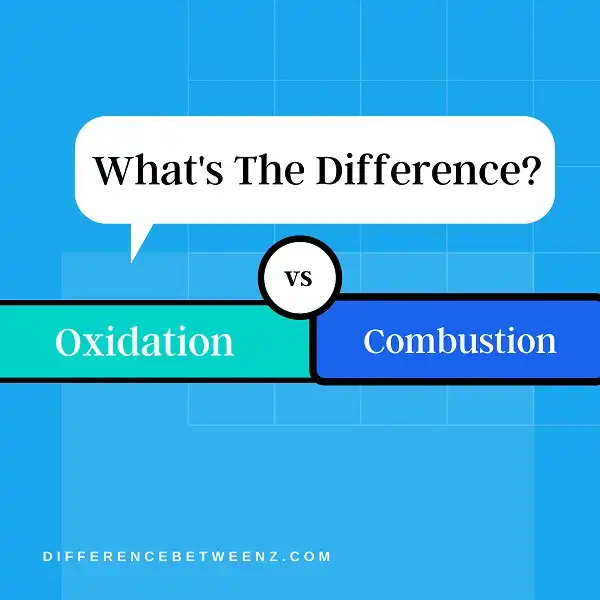Oxidation and combustion are two different processes that can occur when a substance burns. Oxidation is the chemical reaction that removes electrons from a molecule, while combustion is the breakdown of a substance through the use of oxygen. The two processes occur at different rates and produce different products. Understanding the difference between oxidation and combustion is important for firefighters and other emergency responders, who must be able to identify potentially hazardous fires.
What is Oxidation?
Oxidation is a process that occurs when oxygen molecules interact with other molecules in a substance. This interaction can cause changes in the structure of the molecules, and it can also lead to the formation of new molecules. In many cases, oxidation can be harmful to the original substance. For example, when iron rusts, the oxygen molecules cause the iron atoms to lose electrons and Bond with other atoms to form new molecules. This process weakens the iron and makes it susceptible to breakage. However, oxidation can also have beneficial effects. In the body, for example, oxygen helps to break down food and convert it into energy. In general, oxidation is a chemical reaction that involves the transfer of electrons from one molecule to another. The molecule that loses electrons is said to be oxidized, while the molecule that gains electrons is said to be reduced. When these reactions occur in the presence of oxygen, they are known as ‘redox reactions’. Redox reactions are extremely important in many different areas of chemistry, including biology, environmental science, and materials science.
What is Combustion?
- Combustion is a process that releases energy by combining fuel with an oxidizer. The reactants in the combustion reaction are usually in the form of a gas, liquid, or solid. The most common form of combustion is the burning of fossil fuels, such as coal, natural gas, and oil.
- When fossil fuels are burned, they react with the oxygen in the air to produce carbon dioxide and water vapor. The chemical reaction of combustion can be represented by the following equation:
- Fuel + Oxygen → Carbon Dioxide + Water
- The release of energy from the combustion of fossil fuels has made them an important source of power for many industrial and transportation applications. However, the combustion of these materials also produces harmful pollutants, including carbon monoxide and particulate matter. Therefore, it is important to control the combustion process to minimize environmental impact.
Difference between Oxidation and Combustion
Oxidation and combustion are two different processes that can occur during the course of a chemical reaction. Oxidation refers to a chemical process in which electrons are gained by one or more atoms or molecules, while combustion involves the combination of a substance with oxygen. Both reactions result in the release of energy, but oxidation is generally considered to be milder in nature than combustion. Additionally, combustion is often used as a term to describe burning or fire, while oxidation is often discussed at the molecular level. Despite these differences, both oxidation and combustion are important processes that play a crucial role in many different chemical reactions. Whether for scientific research purposes or practical applications, understanding the differences between these two types of reactions is essential for anyone interested in chemistry.
Conclusion
In short, oxidation is a chemical reaction that occurs when atoms lose electrons, while combustion is the burning of a fuel. Both are important processes in our world, but it’s important to understand the difference between them.


